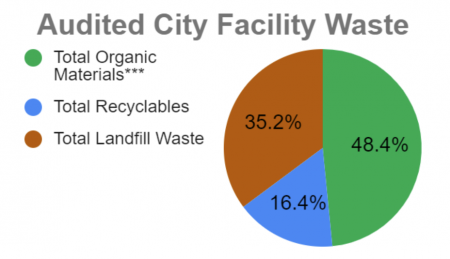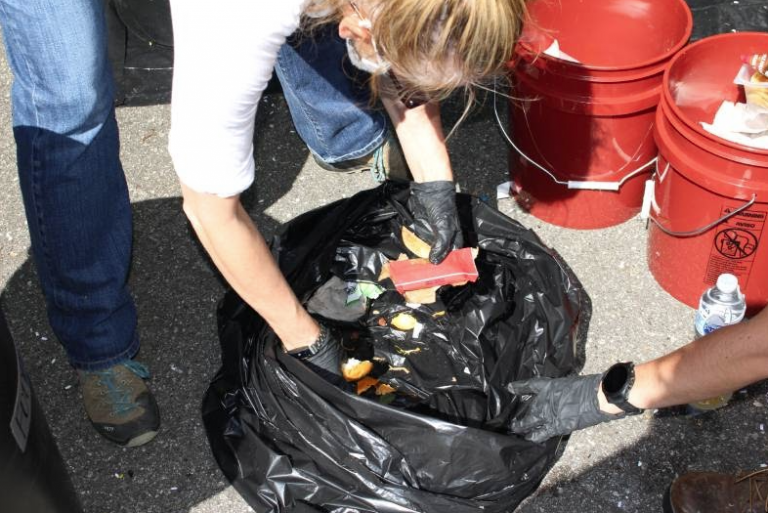Did you know that in the US nearly 40% of food is wasted, clogging our landfills and costing us over $408 billion annually?! The City of Asheville is working hard to think of solutions to reduce our waste and save our food.
The City of Asheville’s Office of Sustainability, in partnership with Sanitation and Buncombe County, recently audited waste at three Asheville Parks & Recreation facilities while they were hosting Asheville City Schools’ learning PODS. This data is being used to learn more about how much and what types of materials are thrown away at public facilities and collect important information to build the case for future changes.
One recreation center already requested additional recycling bins and will be supporting staff in improving recycling. At another site, the City will be trialing a food scrap drop off to compost organic materials.
Almost half of the garbage in the facilities audited was organic material (food scraps and other plant-derived products that will break down naturally), nearly all of which was food waste. By preventing food waste in your home or business, rescuing surplus food for donation and composting food scraps instead of landfilling them, our community could reduce the amount of landfill garbage by half!!

This work is being conducted in collaboration with the Natural Resources Defense Council and the southeastern cohort of NRDC’s Food Matters program, comprised of Asheville and four other cities tackling food waste (Atlanta, Memphis, Nashville, and Orlando).
Here are some ideas for you to take action at your home or business.
- Use this handy resource to conduct your own home food waste audit. It’s amazing what you discover when you take the time to track your food waste — you’ll find quick and easy ways to make little changes that have a big impact!
- Date labels on food can be tricky! Best/use by dates are intended to predict peak quality, not food safety. Exception: dates on baby formula are regulated and should be followed. Your nose knows! Sight, taste and smell are the best indicators of food safety.
- Plan your grocery trips. Have a good list and recipes in mind before you shop to avoid over-purchasing items that might go bad in your fridge
- Freeze it! Freezing food is a great way to extend shelf life on items like bread, eggs, meats, fruits, veggies, and dairy products… even butter and nuts!
- Compost food scraps. Food waste is the largest part of our landfills and creates methane, a powerful global warming pollutant. Composted food scraps create healthy soil!
Learn about composting in Asheville, workshops, events, materials giveaways, and more! Visit Asheville Greenworks’ composting page HERE.
For more information and food waste reduction resources, check out Food Waste Solutions WNC at WNCfoodwaste.org, on social media @wncfoodwaste and by following this hashtag #savethefoodAVL.
City of Asheville supporting governance
Resolution 14-27 Establishing a Waste Reduction Goal
Resolution 17-257 Asheville’s 2017 Food Policy Action Plan
Resolution 20-25 Declaration of a Climate Emergency
To learn more about sustainability initiatives, visit our website and sign up for the Office of Sustainability’s quarterly newsletter.
